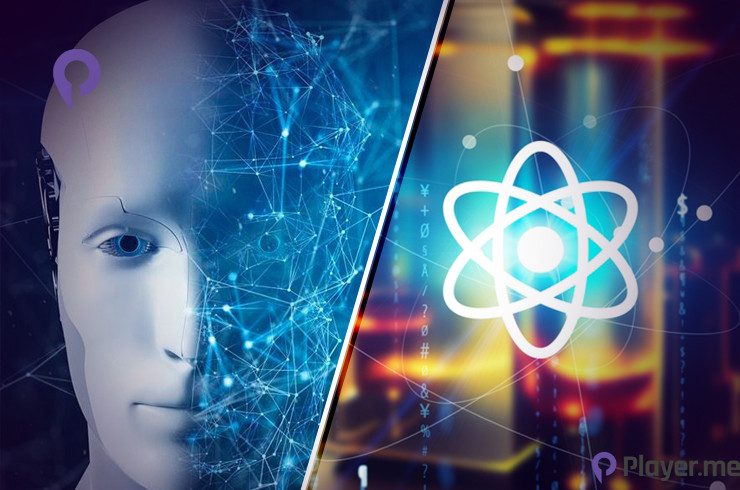Artificial Intelligence (AI) has witnessed significant advancements over the years, with classical AI algorithms driving innovation and solving complex problems. However, the landscape is undergoing a profound transformation with the emergence of quantum AI, which integrates quantum mechanics principles, promising a revolutionary shift.
This article explores the distinctions and advantages of quantum AI vs. classical AI, focusing on key aspects like processing power, problem-solving capabilities, machine learning, pattern recognition, security, and practical implementations.
Also Read: The Future of Computing: AI and Quantum Computing
Quantum AI vs. Classical AI: Computational Models

Classical AI
Classical AI operates on classical computing models, utilising bits that can be in a state of 0 or 1. Algorithms are executed sequentially, following deterministic logic, making classical AI suitable for step-by-step problem-solving.
Quantum AI
In contrast, Quantum AI is based on quantum computing models using qubits. Thanks to superposition and entanglement, qubits can exist in multiple states simultaneously. Quantum algorithms, like Shor’s and Grover’s, leverage these unique properties for parallel processing and exploring multiple solutions concurrently.
Quick Link: Quantum Computing: Unleashing Quantum Power for Lightning-Fast Problem-Solving
Differences
– Superposition and Entanglement: Quantum AI benefits from superposition, allowing qubits to exist in multiple states simultaneously, and entanglement, where one qubit’s state is correlated with another. Classical AI does not have these quantum properties.
– Parallelism: Quantum algorithms can process multiple possibilities in parallel, potentially leading to faster solutions for certain problems. Classical algorithms generally follow a sequential approach.
– Uncertainty: Quantum systems introduce some uncertainty due to the probabilistic nature of measurements, which is not present in classical systems.
Quantum AI Information Processing Approach
A pivotal disparity lies in how quantum AI and classical AI process information. Classical AI relies on bits that exist in a binary state (0 or 1), processed sequentially. Conversely, quantum AI utilises qubits, thanks to the principles of superposition and entanglement, allowing them to exist in multiple states simultaneously. This enables qubits to represent both 0 and 1 concurrently, and when linked, their states correlate regardless of physical distance, a phenomenon known as quantum entanglement.
Quantum parallelism grants the ability to process vast amounts of information simultaneously, potentially providing exponential speedup for certain tasks compared to classical counterparts. For instance, a quantum computer with 50 qubits can theoretically represent 2^50 states concurrently, surpassing the number of atoms in the observable universe.
Read Next: The World-Altering Top 5 Amazing Technological Advancements That Reshaped Our Lives
Activities Enhanced by Quantum Parallelism
– Factorisation: Shor’s quantum algorithm can factorise numbers in polynomial time, unlike classical algorithms that take exponential time.
– Search: Grover’s algorithm, another quantum algorithm, can find items in square root time, contrasting the linear time taken by classical algorithms.
– Simulation: Quantum computers simulate other quantum systems efficiently, whereas classical computers face an exponential slowdown.
Protocols for Quantum Cryptography
– Key Distribution: Ensures secure key distribution.
– Quantum Digital Signatures: Authenticates sender and ensures message integrity.
While quantum cryptography offers unprecedented security, it threatens classical encryption methods that rely on mathematical algorithms. Quantum computers can efficiently solve problems that underlie classical encryption methods, such as RSA, Diffie-Hellman, and elliptic curve cryptography. Developing quantum-resistant encryption methods becomes crucial.
Quantum Superposition and Its Problem-Solving Applications
Quantum AI’s unique ability to exist in multiple states at once, known as superposition, enables it to explore multiple solutions to a problem simultaneously. This is particularly advantageous for tasks involving complex optimisation, where quantum AI can consider numerous possibilities concurrently. Classical AI, limited by sequential processing, may take significantly longer to explore the same solution space.
Also Read: The Impact of Artificial Intelligence on Business: Key Trends and Insights
Computational Capacity: Quantum Parallelism vs. Classical Sequential Processing
Concerning quantum AI vs. classical AI, one of the fundamental differences is their approach to processing information. Classical AI relies on classical bits that exist in either a 0 or 1 state, processed sequentially. In contrast, Quantum AI uses qubits, which can exist in multiple states simultaneously due to the principles of superposition and entanglement. This parallelism allows quantum computers to process vast amounts of information simultaneously, potentially offering exponential speedup for certain tasks compared to classical counterparts.
Quantum Cryptography vs. Classical Encryption for Security
Security is a critical consideration in AI applications, especially in the age of increasing cyber threats. Quantum AI introduces the concept of quantum cryptography, leveraging the properties of quantum mechanics to create secure communication channels. Classical encryption, based on mathematical algorithms, faces potential vulnerabilities with the advent of quantum computers, which can efficiently solve certain mathematical problems underlying classical encryption methods.
Also Read: Emerging Trends in Cybersecurity: Protecting Our Digital World
The Quantum Advantage in Machine Learning and Pattern Recognition
Machine learning, a subset of AI, heavily relies on processing large datasets and identifying complex patterns. Quantum AI exhibits a quantum advantage in machine learning tasks, as quantum algorithms can potentially outperform classical algorithms in terms of efficiency. This advantage becomes increasingly evident when dealing with tasks such as image recognition, natural language processing, and recommendation systems.
Present Status and Future Possibilities of Real-World Applications
While Quantum AI holds immense promise, it is essential to acknowledge the current limitations and challenges. Quantum computers are still in the early stages of development, with practical, large-scale implementations facing obstacles such as error correction and maintaining quantum coherence. Classical AI, being more mature, continues to dominate everyday applications.
The advent of Quantum AI introduces a transformative era in artificial intelligence. Looking at Quantum AI vs. Classical AI, the many differences highlight quantum AI’s potential advantages over classical AI. While there are various challenges in practical implementations, the trajectory of quantum AI promises groundbreaking advancements in the AI landscape. The ongoing development and integration of quantum computing technologies will likely shape the future of AI and usher in new possibilities and applications.
Stay updated on AI news at https://player.me/category/ai/.
Author Profile
Latest entries
 GAMING2024.06.12Top 4 Female Tekken 8 Fighters to Obliterate Your Opponents in Style!
GAMING2024.06.12Top 4 Female Tekken 8 Fighters to Obliterate Your Opponents in Style! NEWS2024.03.18Elon Musk’s SpaceX Ventures into National Security to Empower Spy Satellite Network for U.S.
NEWS2024.03.18Elon Musk’s SpaceX Ventures into National Security to Empower Spy Satellite Network for U.S. GAMING2024.03.17PS Plus: 7 New Games for March and Beyond
GAMING2024.03.17PS Plus: 7 New Games for March and Beyond GAMING2024.03.17Last Epoch Necromancer Builds: All You Need To Know About It
GAMING2024.03.17Last Epoch Necromancer Builds: All You Need To Know About It





